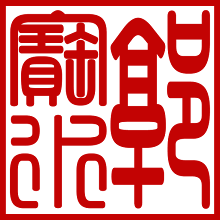Untuk mengucapkan
huruf dalam bahasa mandarin ada teknik2 khusus, walaupun ada sebagian orang
yang bisa berbicara mandarin dengan baik, akan tetapi karena tidak mengetahui
teknik ini menyebabkan mereka tidak bisa melafalkan dengan sempurna.
To read a letter
in Chinese would need some special method, some people don`t know this method,
so they can`t get the perfect pronunciation, even they good in speak Chinese.
读汉语的发音有特别的方法,有些人却能说好汉语,可是不能达到标准。可能都是因为他们不知道这些规矩。Awal konsonan berdasarkan bagian pelafalan (according to pronunciation part of initial consonant) 声母按照发音部位:
Suara dua bibir:
suara yg terbentuk karena dihalangi oleh kedua bibir, ada 3: “b,p,m”.
Suara bibir dan gigi: suara yg
terbentuk karena dihalangi oleh bibir bawah dan gigi atas, ada1:“f”.
Suara ujung lidah dan gingiva:
suara yg terbentuk karena dihalangi oleh ujung lidah dan gingiva, ada 4: “d,t,n,l”.
Suara velar: suara yg
terbentuk Karena dihalangi oleh pangkal lidah dan langit2 yg lunak, ada 3: “g,k,h”.
suara permukaan lidah: suara
yg terbentuk karena dihalangi oleh permukaan lidah dan langit2 yg keras, ada 3: “j,q,x”.
suara ujung lidah dan langit2
keras: suara yg terbentuk karena dihalangi oleh lidah yang diangkat menyentuh langit2 keras, ada 4: “zh,ch,sh,r”.
suara ujung lidah dan punggung gigi: suara yg terbentuk karena dihalangi
oleh ujung lidah dan punggung gigi atas, ada 3: “z,c,s”.
Bilabial sound: a
sound that consist from the impede of two lips, had 3: “b,p,m”.
Labiodentals sound: a sound
that consist from the impede of lower lips and upper teeth, had 1: “f”.
Tongue tip and gingiva sound:
a sound that consist from the impede of tongue tip and gingiva, had 4: “d,t,n,l”.
Velar sound: a sound that
consist from the impede of tongue root and soft palate, had 3: “g,k,h”.
Lingual surface sound: a sound
that consist from the impede of lingual surface and hard palate, had 3: “j,q,x”.
Tongue tip and hard palate
sound: a sound that consist from the impede of hold up the tongue tip at hard palate, had 4: “zh,ch,sh,r”.
tongue tip and back tooth sound: a sound tha consist from the impede of
tongue tip and the back of upper tooth, had 3: “z,c,s”.
双唇音:由上唇和下唇构成阻碍而形成的音,有3个:”b、p、m”。
唇齿音:由下唇和上齿构成阻碍而形成的音,有1个:”f”。
舌尖中音:由舌尖和上齿龈构成阻碍而形成的音,有4个:”d、t、n、l”。
舌根音:有舌根和软腭构成阻碍而形成的音,有3个:”g、k、h”。
舌面音:由舌面和硬腭构成阻碍而形成的音,有3个:”j、q、x”。
舌尖后音:舌尖翘起和硬腭构成阻碍而形成的音,有4个:”zh、ch、sh、r”。
舌尖前音:由舌尖和上齿背构成阻碍而形成的音,有3个:”z、c、s”。

No comments:
Post a Comment
Just feel free to comment or ask anything my friend.
help us to improve this blog for the benefit of anyone who want to learn Chinese.
i`ll always try the best to answer or reply your comment as soon as possible ^.^